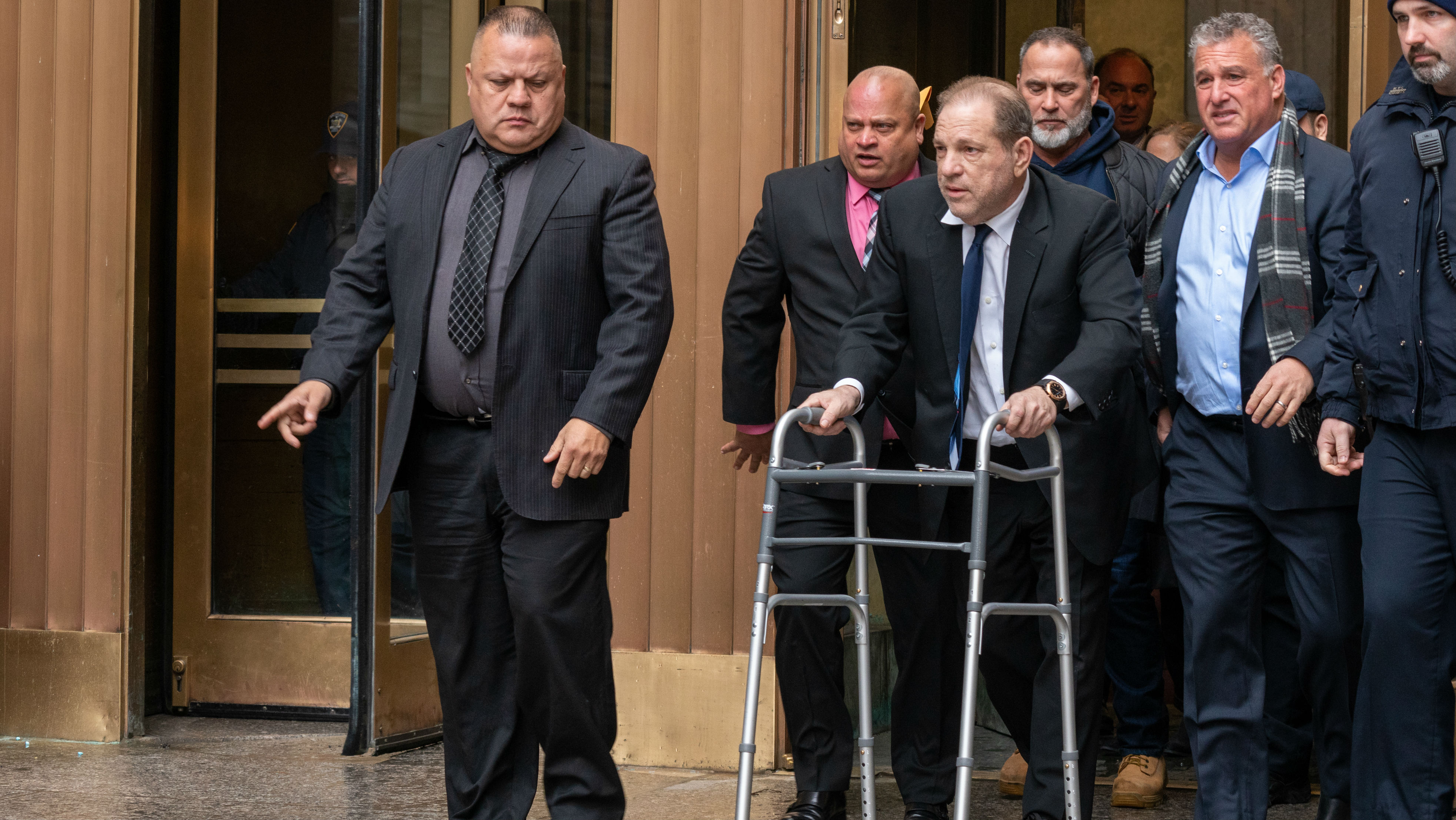Harvey Weinstein #MeToo case to proceed
Judge refuses to dismiss sexual assault case against disgraced movie mogul

A free daily email with the biggest news stories of the day – and the best features from TheWeek.com
You are now subscribed
Your newsletter sign-up was successful
A New York judge has refused to dismiss the sexual assault case against disgraced movie mogul Harvey Weinstein, in what had been touted as a make-or-break moment for the #MeToo movement.
Once one of Hollywood’s most powerful figures, Weinstein has had a stunning fall from grace in the 13 months since a string of women came forward accusing him of sexual harassment, assault and bullying.
He has also become the focal point of #MeToo and the Time’s Up movement founded by women in the entertainment industry this year.
The Week
Escape your echo chamber. Get the facts behind the news, plus analysis from multiple perspectives.

Sign up for The Week's Free Newsletters
From our morning news briefing to a weekly Good News Newsletter, get the best of The Week delivered directly to your inbox.
From our morning news briefing to a weekly Good News Newsletter, get the best of The Week delivered directly to your inbox.
On Thursday, Weinstein made a rare public appearance to come before Manhattan Supreme Court, six months after his dramatic arrest.
He faces five charges relating to raping a woman in a hotel room in New York in 2013, and forcibly performing oral sex on another woman in 2006 at his apartment in Manhattan.
The 66-year-old’s lawyers had argued the sexual assault allegations against him are the result of an unscrupulous police investigation in which one witness was pressured by a detective to give evidence supporting one of his accusers.
Many outside the Manhattan Supreme Court had thought that perhaps the five felony charges made by the two women would be dismissed “that’s certainly what Weinstein’s high-powered legal team wanted”, says the Daily Telegraph.
A free daily email with the biggest news stories of the day – and the best features from TheWeek.com
As it was, Judge James Burke took just 10 minutes to rule the case should proceed to a pretrial hearing on 7 March, a decision that ABC News says “clears the way for prosecutors to try Weinstein”.
The Weinstein case has become a litmus test for whether accusations of sexual assault can be translated into real jail time.
In October, the Manhattan district attorney, Cyrus Vance Jr, dropped one of the charges that Weinstein raped an aspiring actress who was still in college, after evidence surfaced that Detective Nicholas DiGaudio instructed a potential witness to keep some of her doubts about the veracity of the allegations to herself.
Weinstein’s defence attorney Benjamin Brafman has called the case “damaged goods”, and said:
“This is not about the #MeToo movement. This is defending a specific criminal case. If the #MeToo movement helps level the playing field for women throughout the world, then we are strongly supporting that movement. A movement should not, however, be permitted to push an indictment that is deeply flawed, as we believe this movement has done in this case.”
However, Lisa Borders, president of Time’s Up, welcomed the decision.
“Today, here in New York, we saw the first step towards justice,” she told reporters on the steps of the court house. “Together we stand in solidarity with all survivors of sexual assault, everywhere.”
The next hearing is set for early March, and while Thursday’s ruling “doesn’t mean a trial will take place, it’s one step closer”, says the Telegraph.